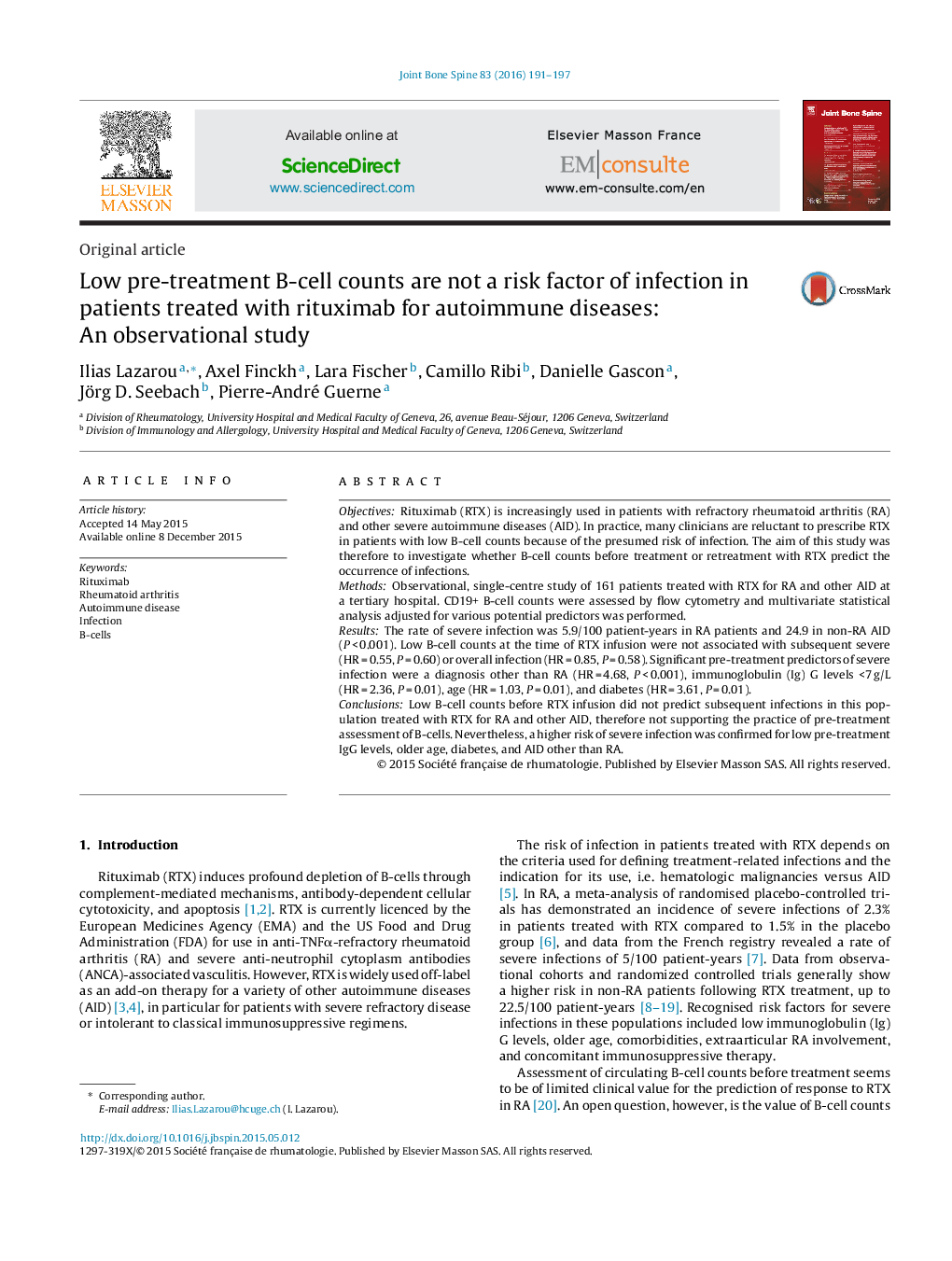| Article ID | Journal | Published Year | Pages | File Type |
|---|---|---|---|---|
| 3365576 | Joint Bone Spine | 2016 | 7 Pages |
ObjectivesRituximab (RTX) is increasingly used in patients with refractory rheumatoid arthritis (RA) and other severe autoimmune diseases (AID). In practice, many clinicians are reluctant to prescribe RTX in patients with low B-cell counts because of the presumed risk of infection. The aim of this study was therefore to investigate whether B-cell counts before treatment or retreatment with RTX predict the occurrence of infections.MethodsObservational, single-centre study of 161 patients treated with RTX for RA and other AID at a tertiary hospital. CD19+ B-cell counts were assessed by flow cytometry and multivariate statistical analysis adjusted for various potential predictors was performed.ResultsThe rate of severe infection was 5.9/100 patient-years in RA patients and 24.9 in non-RA AID (P < 0.001). Low B-cell counts at the time of RTX infusion were not associated with subsequent severe (HR = 0.55, P = 0.60) or overall infection (HR = 0.85, P = 0.58). Significant pre-treatment predictors of severe infection were a diagnosis other than RA (HR = 4.68, P < 0.001), immunoglobulin (Ig) G levels <7 g/L (HR = 2.36, P = 0.01), age (HR = 1.03, P = 0.01), and diabetes (HR = 3.61, P = 0.01).ConclusionsLow B-cell counts before RTX infusion did not predict subsequent infections in this population treated with RTX for RA and other AID, therefore not supporting the practice of pre-treatment assessment of B-cells. Nevertheless, a higher risk of severe infection was confirmed for low pre-treatment IgG levels, older age, diabetes, and AID other than RA.
